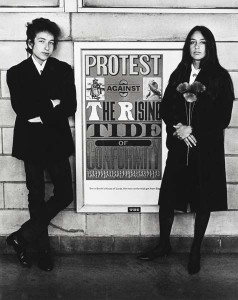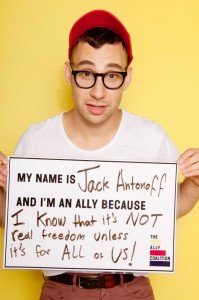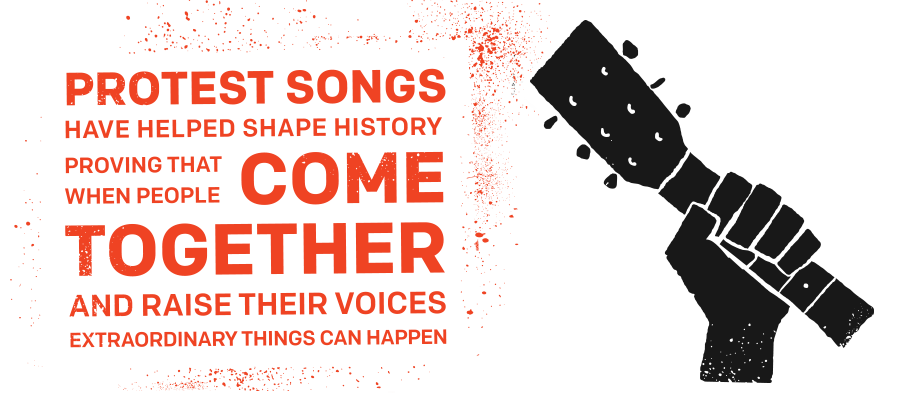Music has long been one of the most unique and powerful ways to engage and inspire people across the globe to take action. In the US in the 1960s, the peace and civil rights movements found their soundtracks in protest anthems. Now, activism-inspired (and -inspiring) music is experiencing a resurgence, in the form of advocacy organizations tapping into the power of music to make a difference, and contemporary musicians singing of issues of far-reaching social and political importance.
The ONE Campaign has harnessed the power of music in their current campaign, #Factivist Week, designed to promote their vision of “Factivism: Fact-based activism against extreme poverty, inspired by concrete evidence and driven by technology.” Supporting ONE’s call to action are contemporary artists covering classic protest songs. The organization has collected songs spanning a variety of genres, from Elvis Costello and Mumford & Sons to Kid Rock and Usher.
 Incorporating music in activism, of course, is not a new technique. The 1950s and ‘60s were full of politically-active artists using lyrics as tool for non-violent expression of pro-civil rights and anti-war messages. Musicians like Pete Seeger and Bob Dylan helped to popularize existing protest songs and created new classics. “We Shall Overcome” and “Blowin' in the Wind” are just two examples. More recently, the same lyrical strategies have been used to draw attention to controversial contemporary issues, like Macklemore’s “Same Love” which supports marriage equality, and the Dixie Chicks’ anti-war anthem "Travelin’ Soldiers".
Incorporating music in activism, of course, is not a new technique. The 1950s and ‘60s were full of politically-active artists using lyrics as tool for non-violent expression of pro-civil rights and anti-war messages. Musicians like Pete Seeger and Bob Dylan helped to popularize existing protest songs and created new classics. “We Shall Overcome” and “Blowin' in the Wind” are just two examples. More recently, the same lyrical strategies have been used to draw attention to controversial contemporary issues, like Macklemore’s “Same Love” which supports marriage equality, and the Dixie Chicks’ anti-war anthem "Travelin’ Soldiers".
 The power of music in activism also resonates beyond song. Social organizations are more frequently employing musicians and the the music industry to increase their impact. We are seeing more and more groups teaming up with artists, increased presence of non-profits at music festivals and concerts, and even musicians creating their own organizations to raise awareness on specific issues. Groups like Reverb, The Ally Coalition, Calling All Crows, and HeadCount demonstrate the power of the ever-more-connected web of activism and music.
The power of music in activism also resonates beyond song. Social organizations are more frequently employing musicians and the the music industry to increase their impact. We are seeing more and more groups teaming up with artists, increased presence of non-profits at music festivals and concerts, and even musicians creating their own organizations to raise awareness on specific issues. Groups like Reverb, The Ally Coalition, Calling All Crows, and HeadCount demonstrate the power of the ever-more-connected web of activism and music.
This increasingly popular activism strategy is a testimony to how truly powerful music can be. By harnessing the communal power of a medium that touches and inspires, and applying it to a greater cause with a clear call to action, music continues to display a real power to drive dramatic, historic social change.
